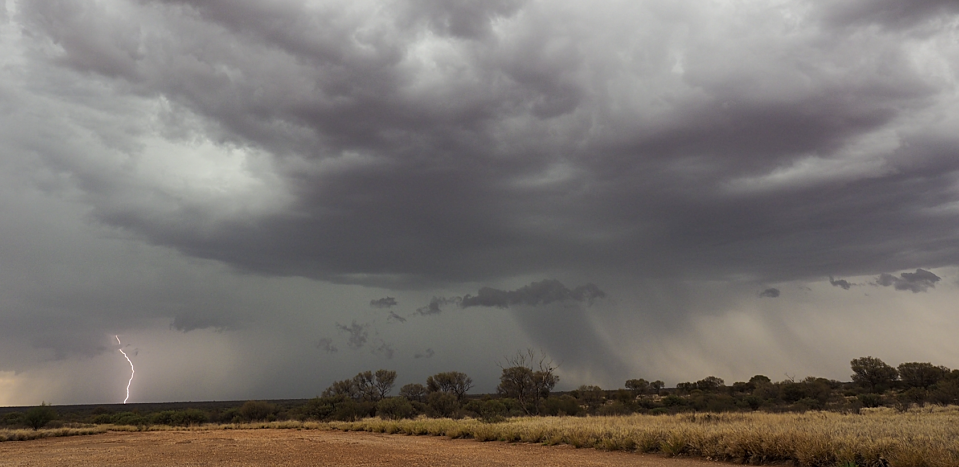
One Nation’s chances as a dominant conservative party are piñata-like
Posted on 11 Feb 2026
Opinions polls insist Pauline Hanson's fortunes are on the rise, but it is likely that enthusiasm…
Posted on 10 Jul 2024
By David Crosbie

Assumptions about how the charity, not-for-profit and community sector is perceived in the community are hollow if not backed up by experience and informed research, says Community Council for Australia CEO David Crosbie.
The American actor Alan Alda once told students in a university commencement address, "Your assumptions are your windows on the world. Scrub them off every once in a while, or the light won't come in."
We all make assumptions about how we are seen – as people, as organisations, as a sector.
Our assumptions are informed by what we know and believe, grounded in a range of inputs starting with our own experiences. Our assumptions are also informed by what we hear and see in the media, by the many reviews of our sector, and by inquiries, in-depth analysis and even quality research, when, and if, it’s available.
Some of us actively monitor as many of these sources as possible, including the various studies relating to trust in institutions and other indications of community perceptions and sentiment. Some invest in measuring perceptions of their organisations.
When I was CEO of a large charity in Melbourne I arranged for regular research – both quantitative and qualitative – to tell us not only how the charity was perceived, but also what kind of messaging was most likely to appeal to different demographics among our supporters. This information was vital to our fundraising campaigns and even our public advocacy for our client groups and the broader community.
I was fortunate to be able to draw on pro bono research from well-established research companies. Most charities and NFPs have only a limited capacity to invest in understanding how their work is perceived, but even then, user surveys and feedback can be crucial.
The ACNC reports and other data sets have provided increasing amounts of descriptive data about the charity and community sector, and there have been some important studies into critical areas like giving and philanthropy, but generally we still rely largely on our experience to inform our assumptions about how the sector is seen across our communities.
How we are seen as a sector matters. Are we valued? Do people see us as integral to supporting their communities, to supporting their connections and engagement in collective action to improve their lives? How are their perceptions of our sector reflected in their actions?
The perception of charities and community organisations is a fundamental issue for the Community Council for Australia (CCA) as we seek to advocate for the sector to politicians, government officials and key stakeholders in national policy making. This is why we were delighted at CCA when Our Community approached us and asked for our input into its research into community attitudes towards our sector, research that would become the Community Compass report.
"All of us rely on assumptions in developing our forward strategies, but sometimes it helps to be able to test our assumptions and ensure we are well informed."
CCA had already commissioned some research from Saatchi and Saatchi which had shown that there are very different views about charities and NFPs across our community. Trying to generalise beyond a few high-level variables was quite difficult.

The one thing we did learn was that older people were more likely to support the notion of charity as helping people who had fallen on hard times, those in need, those who were experiencing loss or illness or who were no longer able to care for themselves or their families. This older group in our community were more likely to donate to charities who help out after the floods and fires, or offer food and emergency relief to the homeless or unwell.
The same group of older charity supporters were much less supportive of the idea of charities trying to improve the world, to reduce the impact of climate change through more effective greenhouse policies, or cut the level of homelessness by advocating for a change in the level of government support available. Many thought charities should not be advocates.
Younger people, however, tended to be more supportive of the idea that charities and NFPs should be trying to change the world for the better. They weren’t opposed to the idea of helping-hand charities, but were more likely to support the cause-driven charities and NFPs who were tackling injustice, inequality and the lack of investment in the future of our planet.
This was high level research to support a possible campaign promoting the change that charities deliver across our communities.
The research Our Community has commissioned – Community Compass: A segmentation of Australia’s views and engagement with the community sector by 89 Degrees East – is a much more extensive, detailed and nuanced analysis of community attitudes and perceptions.
I have promised the authors, Dr Rebecca Huntley and her team including Holly McCarthy, that I won't reveal any of their key findings until next week when the full report is released. What I can say is I learned a lot about community perceptions of our sector from this new report.
I would also strongly endorse this statement from the Assistant Minister for Charities, Dr Andrew Leigh, in his foreword to the report:
"Dr Rebecca Huntley and her team discuss six distinct cohorts within the Australian community, with different attitudes and levels of engagement. From the highly supportive Enthusiastic Engaged to the more detached Indifferent Uninvolved, these segments offer insights for charities seeking to tailor their engagement strategies."
All of us rely on assumptions in developing our forward strategies, but sometimes it helps to be able to test our assumptions and ensure we are well informed.
The Community Compass will be compelling reading for every charity leader in Australia with an interest in engaging their community. It presents our sector with some good news and some bad, but most importantly it helps fill in some of the gaps in our assumptions about how the work we do is perceived across the community.
Once this report is released next week, I expect many of us will be having better informed and more robust debates about the place of our sector within Australia, and how we can best ensure the work we do across our sector is valued by our communities.
David Crosbie has been CEO of the Community Council for Australia for the past decade and has spent more than a quarter of a century leading significant not-for-profit organisations, including the Mental Health Council of Australia, the Alcohol and Other Drugs Council of Australia, and Odyssey House Victoria.

Posted on 11 Feb 2026
Opinions polls insist Pauline Hanson's fortunes are on the rise, but it is likely that enthusiasm…

Posted on 04 Feb 2026
As we move into 2026, I can’t help but think the world is wobbling a little.

Posted on 28 Jan 2026
The 2026 Australia Day Honours list delivered a sobering reality check. After reaching gender…

Posted on 28 Jan 2026
This year’s Adelaide Writers’ Week began with the cancellation of a talk by Palestinian-Australian…

Posted on 16 Dec 2025
As Australia prepares to welcome its one millionth refugee, human rights advocate and former…

Posted on 10 Dec 2025
What a year 2025 has been, particularly at a national level where the Parliament and politics as we…

Posted on 26 Nov 2025
Charities and not-for-profits can be outstanding advocates for their cause, their community, their…

Posted on 12 Nov 2025
Managing a charity or not-for-profit in Australia is often more complex than it may appear. On any…

Posted on 29 Oct 2025
One of the most contentious debates across many areas of human services is the for-profit versus…

Posted on 28 Oct 2025
Workers in the not-for-profit sector lift up communities, care for those in crisis and do work that…

Posted on 08 Oct 2025
The cost of climate change's impact on Australian life is increasingly well documented. The…

Posted on 08 Oct 2025
The Wurundjeri Indigenous people who live in and around Melbourne understand their environment as…